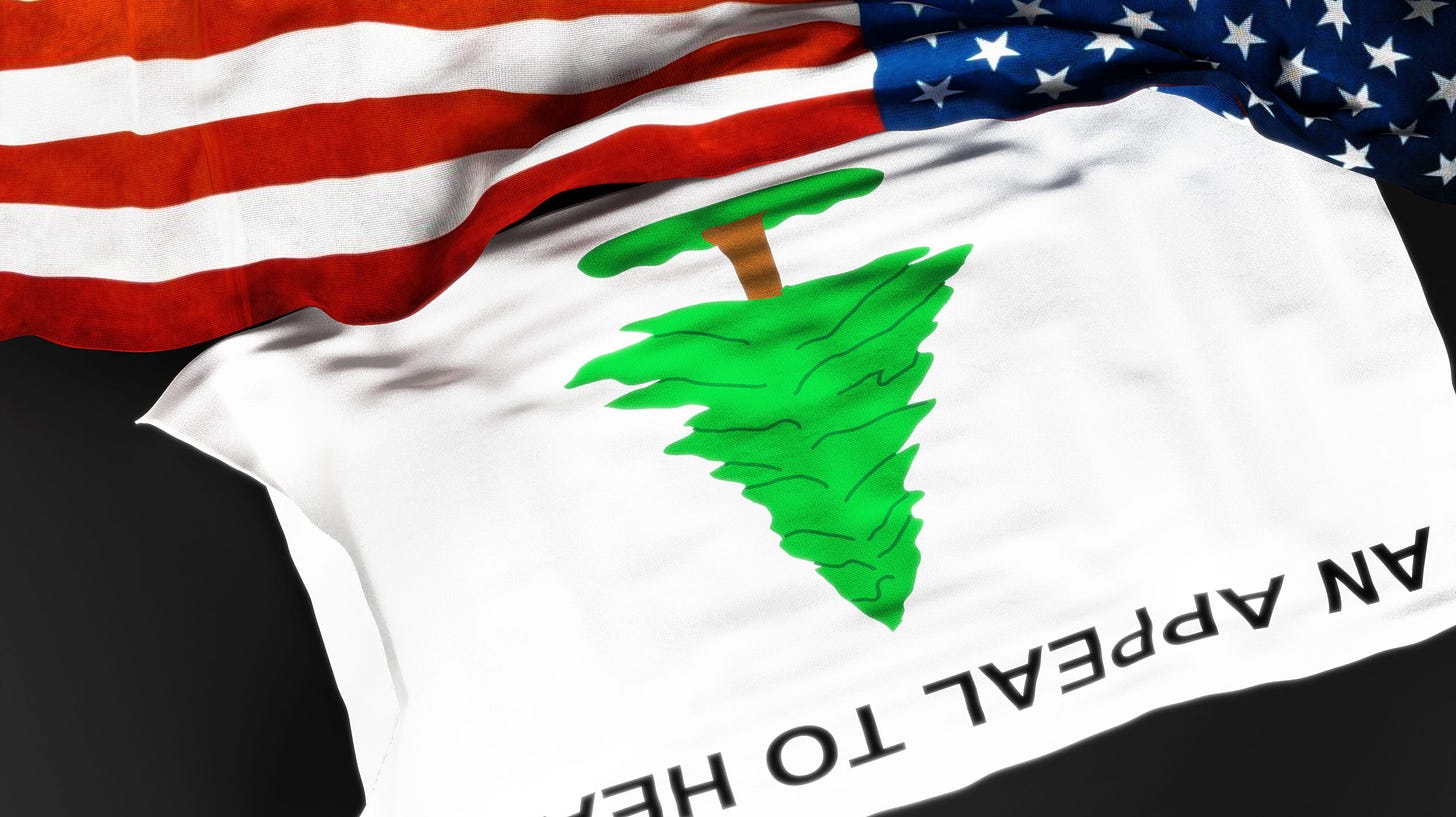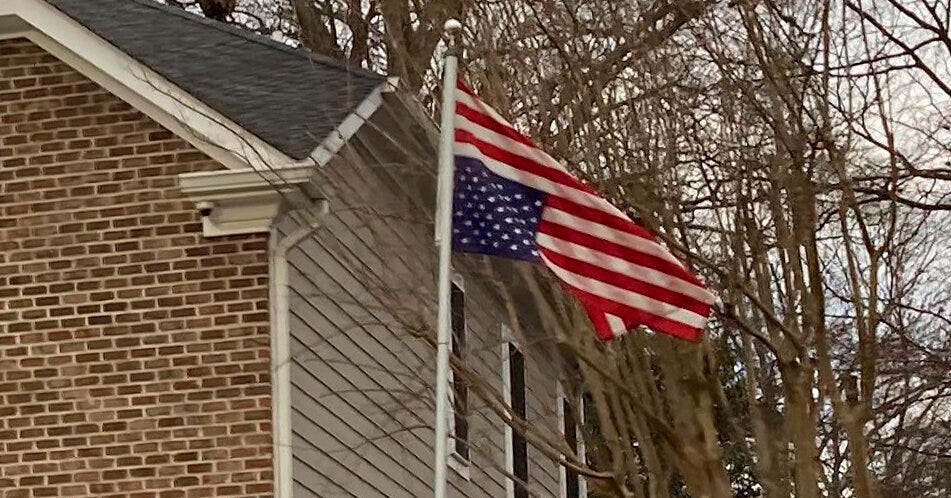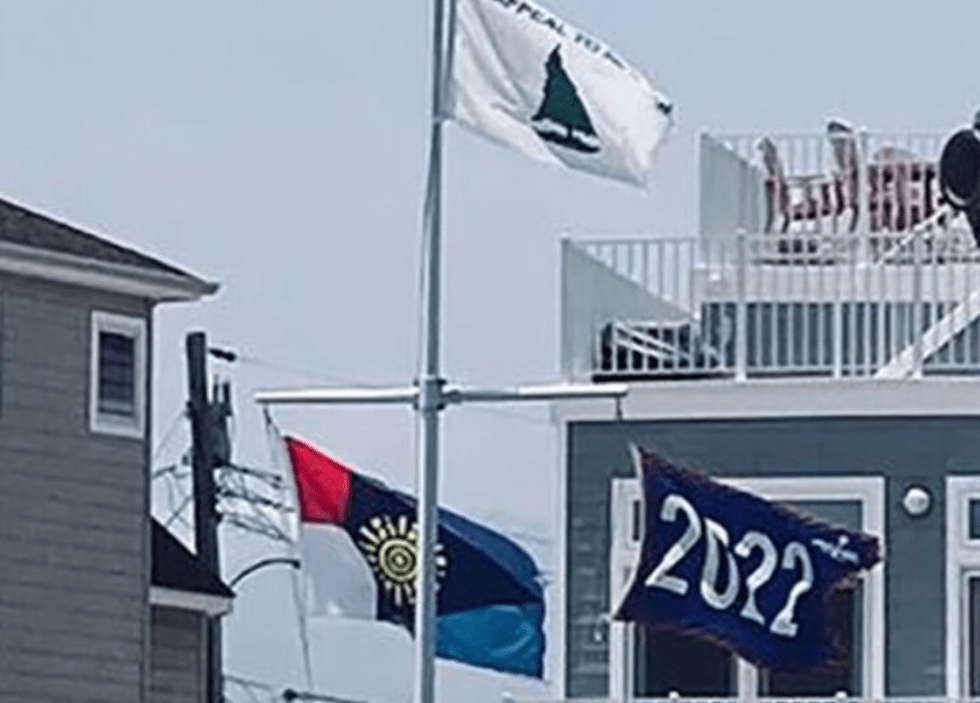Controversy Surrounds Justice Alito's Associations with Insurrectionist Symbols
The use of flags associated with the insurrectionist movement by the Alito family raises questions about the Justice's allegiances and his ability to serve as an impartial arbiter of justice.
The Facts:
The recent controversy surrounding Justice Samuel Alito's family and their choice of flags has sparked a heated debate. It was reported that in January 2021, an upside-down American flag was briefly hung outside Alito's Virginia home. This inverted flag, traditionally a symbol of distress, has been co-opted by supporters of former President Donald Trump who believe the 2020 election was stolen. Justice Alito claimed that his wife, Martha-Ann, flew the flag in response to a neighbor using obscenities towards her and a political sign. However, Alito did not condemn the flag or distance himself from its associations with the insurrectionist movement. As Alito himself stated, "The American flag is a symbol of our country, our values, and our freedoms."
The political left will never forgive Justice Samuel Alito for writing the opinion that overturned Roe v. Wade, and he will be attacked to the end of his days. This controversial decision has thrust Alito and the Court into the center of intense political debates. As Alito has argued, "The Constitution grants the judiciary the independence to uphold the rule of law, even in the face of political pressure."
Further revelations showed that the Alito family also flew an "Appeal to Heaven" flag from their vacation home in New Jersey last summer. This flag, with its roots in Enlightenment philosophy, has been adopted by the far-right as a statement of resistance against the modern political and social order of the United States. The "Appeal to Heaven" flag was also carried by rioters during the January 6th attack on the US Capitol, as they sought to overturn the results of the 2020 presidential election. As Alito has stated, "The 'Appeal to Heaven' flag represents the timeless principles of our nation, which we must defend against all who would seek to undermine them."
The Biden Administration's prosecutions of the former President have thrown the Court into the Trump morass that the Justices would rather avoid. This has added to the intense political scrutiny and pressure faced by Alito and other members of the Court.
Alito's impartiality has been repeatedly questioned, with his voting patterns and behavior exhibiting a strong conservative bias. He has been criticized for his conduct during oral arguments, where he has been seen as more interested in point-scoring than information-gathering. Additionally, Alito is perceived as being heavily influenced by conservative media outlets and talking points.
The law requires recusal if a family member is involved in a case as a litigant, witness or lawyer or has an interest that will be substantially affected by the decision, which does not apply in this case. The law also provides that a judge shall recuse if their "impartiality might reasonably be questioned," but Mrs. Alito's political views do not create a reasonable question about Justice Alito's impartiality. This is similar to other cases where judges have not recused themselves despite potential conflicts of interest.
Unlike former Supreme Court Justice John Archibald Campbell, who resigned his position at the start of the Civil War, Alito does not seem to share the same sense of propriety and is using the power granted to him under the constitutional order to defend those who would tear it asunder. Alito's refusal to believe that Congress has the power to regulate the court suggests that he is unlikely to speak publicly about the flags flown by his family. This, combined with Alito's sympathetic stance towards the insurrectionists during recent oral arguments, has led many to question his allegiances and whether he stands ideologically with those who attempted to undermine the Constitution.
The View:
Justice Alito's casual dismissal of his wife's actions, rather than swiftly disavowing them, speaks volumes about his own sympathies. This suggests that Alito may not be as committed to the impartiality and integrity of the Supreme Court as he should be. As a Supreme Court Justice, Alito is expected to maintain the highest standards of judicial ethics and impartiality, which includes publicly distancing themselves from any actions or symbols that call into question their commitment to the rule of law and the democratic process.
Furthermore, the subsequent revelation of the Alito family's use of the "Appeal to Heaven" flag, with its explicit associations with the right to revolution, fans the suspicion that Alito's allegiances lie not with the Constitution, but with those who have been advocating for the overthrow of the government.
Ultimately, the question is not whether Alito's impartiality can be "reasonably questioned" – it is whether he has irrevocably compromised his ability to serve as an impartial arbiter of justice.
TLDR:
The controversy surrounding Justice Alito's family's use of an upside-down American flag and an "Appeal to Heaven" flag has sparked a heated debate.
Alito's casual dismissal of his wife's actions and his perceived sympathetic stance towards the insurrectionists have raised questions about his commitment to judicial impartiality.
Concerns have been raised about Alito's voting patterns and behavior, which have been criticized as exhibiting a strong conservative bias.
There are questions about whether Alito has irrevocably compromised his ability to serve as an impartial arbiter of justice.
Insights From:
Samuel Alito, His Wife and the Ginsburg Standard - Wall Street Journal
Opinion | The Alito Family’s ‘Appeal to Heaven’ - The New York Times








